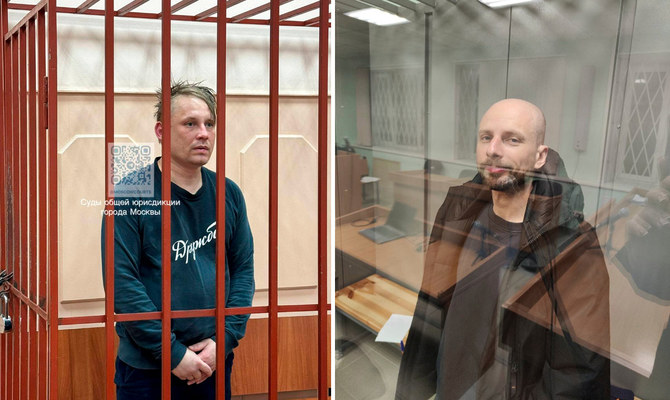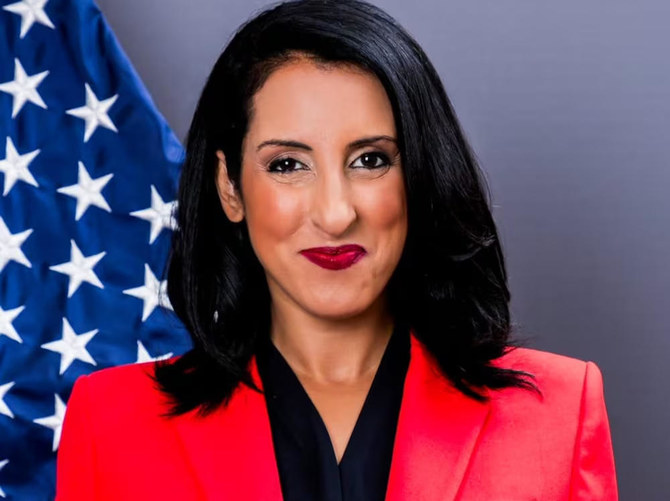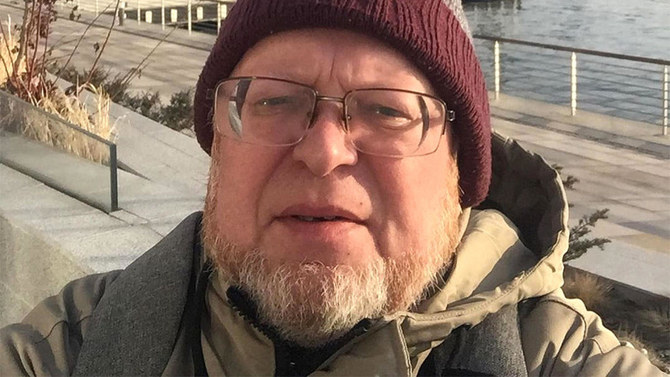SAN FRANCISCO: Until recently, Brett Schickler never imagined he could be a published author, though he had dreamed about it. But after learning about the ChatGPT artificial intelligence program, Schickler figured an opportunity had landed in his lap.
“The idea of writing a book finally seemed possible,” said Schickler, a salesman in Rochester, New York. “I thought ‘I can do this.’“
Using the AI software, which can generate blocks of text from simple prompts, Schickler created a 30-page illustrated children’s e-book in a matter of hours, offering it for sale in January through Amazon.com Inc’s self-publishing unit.
In the edition, Sammy the Squirrel, crudely rendered also using AI, learns from his forest friends about saving money after happening upon a gold coin. He crafts an acorn-shaped piggy bank, invests in an acorn trading business and hopes to one day buy an acorn grinding stone.
Sammy becomes the wealthiest squirrel in the forest, the envy of his friends and “the forest started prospering,” according to the book.
“The Wise Little Squirrel: A Tale of Saving and Investing,” available in the Amazon Kindle store for $2.99 — or $9.99 for a printed version — has netted Schickler less than $100, he said. While that may not sound like much, it is enough to inspire him to compose other books using the software.
“I could see people making a whole career out of this,” said Schickler, who used prompts on ChatGPT like “write a story about a dad teaching his son about financial literacy.”
Schickler is on the leading edge of a movement testing the promise and limitations of ChatGPT, which debuted in November and has sent shock waves through Silicon Valley and beyond for its uncanny ability to create cogent blocks of text instantly.
There were over 200 e-books in Amazon’s Kindle store as of mid-February listing ChatGPT as an author or co-author, including “How to Write and Create Content Using ChatGPT,” “The Power of Homework” and poetry collection “Echoes of the Universe.” And the number is rising daily. There is even a new sub-genre on Amazon: Books about using ChatGPT, written entirely by ChatGPT.
But due to the nature of ChatGPT and many authors’ failure to disclose they have used it, it is nearly impossible to get a full accounting of how many e-books may be written by AI.
The software’s emergence has already ruffled some of the biggest technology firms, prompting Alphabet Inc. and Microsoft Corp. to hastily debut new functions in Google and Bing, respectively, that incorporate AI.
The rapid consumer adoption of ChatGPT has spurred frenzied activity in tech circles as investors pour money into AI-focused startups and given technology firms new purpose amid the gloom of massive layoffs. Microsoft, for one, received fawning coverage this month over its otherwise moribund Bing search engine after demonstrating an integration with ChatGPT.
But already there are concerns over authenticity, because ChatGPT learns how to write by scanning millions of pages of existing text. An experiment with AI by CNET resulted in multiple corrections and apparent plagiarism before the tech news site suspended its use.
THREAT TO ‘REAL’ AUTHORS?
Now ChatGPT appears ready to upend the staid book industry as would-be novelists and self-help gurus looking to make a quick buck are turning to the software to help create bot-made e-books and publish them through Amazon’s Kindle Direct Publishing arm. Illustrated children’s books are a favorite for such first-time authors. On YouTube, TikTok and Reddit hundreds of tutorials have spring up, demonstrating how to make a book in just a few hours. Subjects include get-rich-quick schemes, dieting advice, software coding tips and recipes.
“This is something we really need to be worried about, these books will flood the market and a lot of authors are going to be out of work,” said Mary Rasenberger, executive director of writers’ group the Authors Guild. Ghostwriting — by humans — has a long tradition, she said, but the ability to automate through AI could turn book writing from a craft into a commodity.
“There needs to be transparency from the authors and the platforms about how these books are created or you’re going to end up with a lot of low-quality books,” she said.
One author, who goes by Frank White, showed in a YouTube video how in less than a day he created a 119-page novella called “Galactic Pimp: Vol. 1” about alien factions in a far-off galaxy warring over a human-staffed brothel. The book can be had for just $1 on Amazon’s Kindle e-book store. In the video, White says anyone with the wherewithal and time could create 300 such books a year, all using AI.
Many authors, like White, feel no duty to disclose in the Kindle store that their great American novel was written wholesale by a computer, in part because Amazon’s policies do not require it.
When asked for comment by Reuters, Amazon did not address whether it had plans to change or review its Kindle store policies around authors’ use of AI or other automated writing tools. “All books in the store must adhere to our content guidelines, including by complying with intellectual property rights and all other applicable laws,” Amazon spokeswoman Lindsay Hamilton said via email.
A spokeswoman for ChatGPT developer OpenAI declined to comment.
FROM CONCEPTION TO PUBLICATION IN JUST HOURS
Amazon is by far the largest seller of both physical and e-books, commanding well over half of sales in the United States and, by some estimates, over 80 percent of the e-book market. Its Kindle Direct Publishing service has spawned a cottage industry of self-published novelists, carving out particular niches for enthusiasts of erotic content and self-help books.
Amazon created Kindle Direct Publishing in 2007 to allow anyone to sell and market a book from their couch without the hassle or expense of seeking out literary agents or publishing houses. Generally, Amazon allows authors to publish instantly through the unit without any oversight, splitting whatever proceeds they generate.
That has attracted new AI-assisted authors like Kamil Banc, whose primary job is selling fragrances online, who bet his wife he could make a book from conception to publication in less than one day. Using ChatGPT, an AI image creator and prompts like “write a bedtime story about a pink dolphin that teaches children how to be honest,” Banc published an illustrated 27-page book in December. Available on Amazon, “Bedtime Stories: Short and Sweet, For a Good Night’s Sleep” took Banc about four hours to create, he said.
Consumer interest so far has been admittedly sleepy: Banc said sales have totaled about a dozen copies. But readers rated it worthy of five stars, including one who praised its “wonderful and memorable characters.”
Banc has since published two more AI-generated books, including an adult coloring book, with more in the works. “It actually is really simple,” he said. “I was surprised at how fast it went from concept to publishing.”
Not everyone is blown away by the software. Mark Dawson, who has reportedly sold millions of copies of books he wrote himself through Kindle Direct Publishing, was quick to call ChatGPT-assisted novels “dull” in an email to Reuters.
“Merit plays a part in how books are recommended to other readers. If a book gets bad reviews because the writing is dull then it’s quickly going to sink to the bottom.”
ChatGPT launches boom in AI-written e-books on Amazon
https://arab.news/6hxqa
ChatGPT launches boom in AI-written e-books on Amazon

- Bot-made e-books have sparked an intense debate about authenticity, future of writers
Two Russian journalists jailed on ‘extremism’ charges for alleged work for Navalny group

- Konstantin Gabov and Sergey Karelin both denied the charges for which they will be detained for a minimum of two months before any trials begin
- Russia’s crackdown is aimed at opposition figures, journalists, activists, members of the LGBTQ+ community, and other dissenters
LONDON: Two Russian journalists were arrested by their government on “extremism” charges and ordered by courts there on Saturday to remain in custody pending investigation and trial on accusations of working for a group founded by the late Russian opposition politician Alexei Navalny.
Konstantin Gabov and Sergey Karelin both denied the charges for which they will be detained for a minimum of two months before any trials begin. Each faces a minimum of two years in prison and a maximum of six years for alleged “participation in an extremist organization,” according to Russian courts.
They are just the latest journalists arrested amid a Russian government crackdown on dissent and independent media that intensified after its full-scale invasion of Ukraine more than two years ago. The Russian government passed laws criminalizing what it deems false information about the military, or statements seen as discrediting the military, effectively outlawing any criticism of the war in Ukraine or speech that deviates from the official narrative.
A journalist for the Russian edition of Forbes magazine, Sergei Mingazov, was detained on charges of spreading false information about the Russian military, his lawyer said Friday.
Gabov and Karelin are accused of preparing materials for a YouTube channel run by Navalny’s Foundation for Fighting Corruption, which has been outlawed by Russian authorities. Navalny died in an Arctic penal colony in February.
Gabov, who was detained in Moscow, is a freelance producer who has worked for multiple organizations, including Reuters, the court press service said. Reuters did not immediately comment on the ruling by the court.
Karelin, who has dual citizenship with Israel, was detained Friday night in Russia’s northern Murmansk region.
Karelin, 41, has worked for a number of outlets, including for The Associated Press. He was a cameraman for German media outlet Deutsche Welle until the Kremlin banned the outlet from operating in Russia in February 2022.
“The Associated Press is very concerned by the detention of Russian video journalist Sergey Karelin,” the AP said in a statement. “We are seeking additional information.”
Russia’s crackdown on dissent is aimed at opposition figures, journalists, activists, members of the LGBTQ+ community, and ordinary Russians critical of the Kremlin. A number of journalists have been jailed in relation to their coverage of Navalny, including Antonina Favorskaya, who remains in pre-trial detention at least until May 28 following a hearing last month.
Favorskaya was detained and accused by Russian authorities of taking part in an “extremist organization” by posting on the social media platforms of Navalny’s Foundation. She covered Navalny’s court hearings for years and filmed the last video of Navalny before he died in the penal colony.
Kira Yarmysh, Navalny’s spokeswoman, said that Favorskaya did not publish anything on the Foundation’s platforms and suggested that Russian authorities have targeted her because she was doing her job as a journalist.
Evan Gershkovich, a 32-year-old American reporter for The Wall Street Journal, is awaiting trial on espionage charges at Moscow’s notorious Lefortovo Prison. Both Gershkovich and his employer have vehemently denied the charges.
Gershkovich was detained in March 2023 while on a reporting trip and has spent over a year in jail; authorities have not detailed what, if any, evidence they have to support the espionage charges.
The US government has declared Gershkovich wrongfully detained, with officials accusing Moscow of using the journalist as a pawn for political ends.
The Russian government has also cracked down on opposition figures. One prominent activist, Vladimir Kara-Murza was sentenced to 25 years.
US State Department Arabic spokesperson resigns in opposition to Gaza policy

- Hala Rharrit is at least the third person to resign from the department over the issue
WASHINGTON: The Arabic language spokesperson of the US State Department has resigned, citing her opposition to Washington’s policy related to the war in Gaza, in at least the third resignation from the department over the issue.
Hala Rharrit was also the Dubai Regional Media Hub’s deputy director and joined the State Department almost two decades ago as a political and human rights officer, the department’s website showed.
“I resigned April 2024 after 18 years of distinguished service in opposition to the United States’ Gaza policy,” she wrote on social media website LinkedIn. A State Department spokesperson, asked about the resignation in Thursday’s press briefing, said the department has channels for its workforce to share views when it disagrees with government policies.
Nearly a month earlier, Annelle Sheline of the State Department’s human rights bureau announced her resignation, and State Department official Josh Paul resigned in October.
A senior official in the US Education Department, Tariq Habash, who is Palestinian-American, had stepped down in January.
The United States has come under mounting criticism internationally and from human rights groups over its support for Israel amid Israel’s ongoing assault in Gaza that has killed tens of thousands and caused a humanitarian crisis.
There have been reports of signs of dissent in the administration of President Joe Biden as deaths continue to grow in the war.
In November, more than 1,000 officials in the US Agency for International Development (USAID), part of the State Department, signed an open letter calling for an immediate ceasefire. Cables criticizing the administration’s policy have also been filed with the State Department’s internal “dissent channel.”
The war has also caused intense discourse and anti-war demonstrations across the United States, Israel’s most important ally.
Palestinian Islamist group Hamas attacked Israel on Oct. 7, killing 1,200 people, according to Israeli tallies. Israel has killed over 34,000 people in Hamas-governed Gaza, according to Gaza’s health ministry, leading to widespread displacement, hunger and genocide allegations that Israel denies.
Burkina Faso suspends BBC, VOA radio broadcasts over killings coverage

- Authorities handed two-week suspension for covering of report accusing the army of extrajudicial killings
- Human Rights Watch report says military executed about 223 villagers, including at least 56 children
LONDON: Burkina Faso has suspended the radio broadcasts of BBC Africa and the US-funded Voice of America (VOA) for two weeks over their coverage of a Human Rights Watch (HRW) report accusing the army of extrajudicial killings, authorities said late on Thursday.
In the report based on its own investigation, the rights watchdog said the West African country’s military summarily executed about 223 villagers, including at least 56 children, in February as part of a campaign against civilians accused of collaborating with jihadist militants.
HRW said the Burkinabe army has repeatedly committed mass atrocities against civilians in the name of fighting terrorism, and it called on authorities to investigate the massacres.
The country’s communication council said HRW’s report contained “peremptory and tendentious” declarations against the army likely to create public disorder and it would suspend the programs of the broadcasters over their coverage of the story.
Authorities also said in a statement they had ordered Internet service providers to suspend access to the websites and other digital platforms of the BBC, VOA and Human Rights Watch from Burkina Faso.
“VOA stands by its reporting about Burkina Faso and intends to continue to fully and fairly cover events in that country,” Acting VOA Director John Lippman said in a statement.
“The Voice of America strictly adheres to the principles of accurate, balanced and comprehensive journalism, therefore, we ask the government of Burkina Faso to reconsider this troubling decision.”
HRW conducted its investigation after a regional prosecutor said in March that about 170 people were executed by unidentified assailants during attacks on the villages of Komsilga, Nodin and Soro.
Burkina Faso is one of several Sahel nations that have been struggling to contain Islamist insurgencies linked to Al-Qaeda and Islamic State that have spread from neighboring Mali since 2012, killing thousands and displacing millions.
Frustrations over authorities’ failure to protect civilians have contributed to two coups in Mali, two in Burkina Faso and one in Niger since 2020.
Russia arrests Forbes reporter over Bucha posts

- Sergei Mingazov was detained with the accusation of spreading false information about the army
MOSCOW: Russia has arrested a journalist from the Russian edition of Forbes magazine for social media reposts over accusations of Russian atrocities in the Ukrainian town of Bucha, his lawyer and Forbes said on Friday.
Rights groups say hundreds of Russians have been arrested, fined and jailed for criticizing Russia’s offensive on Ukraine under tough military censorship laws.
Russian authorities have particularly targeted people for comments on Bucha, the Kyiv suburb where Russian troops have been accused of massacring civilians.
Moscow has rejected those charges and accused Kyiv and the West of staging the scenes of dead civilians and testimonies of torture.
“Sergei Mingazov was detained and is being held in a temporary detention center” in the Far East city of Khabarovsk, the journalist’s lawyer Konstantin Bubon said in a Facebook post.
He faces up to 10 years in prison under charges of spreading “false information,” Bubon said.
“In short, for reposting a publication about the events in Bucha” on a Telegram channel, he added.
His Telegram channel, which has around 430 followers, features a number of reposts from April 2022 that allege Russian troops killed civilians in Bucha.
Russian forces controlled the Kyiv suburb for a month at the start of the campaign.
Pictures of dead civilians found on the streets made front pages around the world, triggering outrage in the West.
Forbes Russia said Friday it had not been able to contact Mingazov.
A Russian reporter was last month sentenced to seven years in jail for articles on alleged Russian war crimes, including at Bucha.
And opposition politician Ilya Yashin is serving eight and a half years in jail on similar charges after discussing the claims in a YouTube video.
Moscow has outlawed criticism of its offensive and has made independent reporting on the campaign effectively illegal.
Numerous foreign and Russian reporters have left the country over the last two years under the fear of arrest.
The Reporters Without Borders advocacy group said Russia arrested 34 journalists during 2023.
They included Wall Street Journal reporter Evan Gershkovich, a US citizen, and joint US-Russian citizen Alsu Kurmasheva — both of whom are still in pre-trial detention.
Saudi Vision 2030 changed everything, says CEO of Publicis Communications KSA

- Adel Baraja brought over 2 decades of global experience
- Role includes overseeing the group’s Saudi operations, fostering talent
DUBAI: Advertising and marketing network Publicis Groupe appointed Adel Baraja as CEO of Publicis Communications Saudi Arabia in late February as part of its efforts to strengthen its presence in the Kingdom.
Publicis Communications is the creative communications arm of the network housing agencies such as Leo Burnett and Saatchi & Saatchi.
The appointment reinforced Publicis Groupe Middle East’s commitment to accelerating growth within Saudi Arabia while enhancing collaboration and expanding capabilities to deliver transformative work for clients.
 Baraja brought with him 22 years of global advertising and brand-building experience.
Baraja brought with him 22 years of global advertising and brand-building experience.
He had started his professional life in engineering before realizing it was not for him.
He told Arab News: “I wanted to be with clients and that’s when I took my first pivot toward client management (and) sales, and I found my calling in marketing.”
He spent his early days working across advertising agencies in Germany, Spain, and Portugal, before returning to Saudi Arabia where he first interacted with Publicis Groupe. At the time he was hoping to find a job at Leo Burnett, but turned out to be a better fit for one of its clients, Saudi Telecom Company.
He then took a break from advertising agencies to work across industries in companies like Dow Chemical and Volkswagen.
And then, he said, came a “critical moment” in his career.
He added: “I never considered (working in) government before, but six months prior Vision 2030 was introduced, and that was everything.
“It was a meticulous plan — a road map towards something that I had never experienced or seen before. So, I got my first role in government in 2017.”
He led the newly established promotion and nation-branding sector at the Saudi Export Development Authority, growing the Saudi Made portfolio of companies from 20 to more than 2,000 companies during his tenure.
He also held the position of deputy minister of investment promotion at the Ministry of Investment before joining Publicis Groupe Middle East.
Communications had always been a “savvy topic” in the Kingdom, but it was heavily focused on and driven by the private sector, he said.
Vision 2030 changed it all, and “the government sector became a big spender in the communication sector and a driver to creativity,” he added.
With these changes, the demand for local talent is higher now than ever before, and fostering that talent is a strong priority for Baraja and Publicis Groupe.
Baraja is tasked with overseeing the integrated growth strategy of Publicis Communications in his new role, as well as working with educational institutions to empower Saudi youth for careers in advertising, media, and digital marketing.
He said that Bassel Kakish, CEO at Publicis Groupe Middle East and Turkiye, told him that the company needs to be developing and fostering local talent, hiring more locally, and ensuring gender equality, training more women in the advertising and creative industries.
Baraja said: “We are competing against other industries to get that share of talent, so we need to promote our industry and our company.”
Looking ahead, the company is investing in the future, which means increased focus on technology through acquisitions such as that of tech company Epsilon in 2020 and e-commerce company Corra in 2023.
Publicis last year announced the acquisition of a full stake in Publicis Sapient AI Labs, an artificial intelligence research and development joint venture launched in 2020 which aims to strengthen Publicis Sapient’s data and AI capabilities.
Baraja added: “That kind of investment shows the focus toward the future and the transformation of the business.”
There is a lot of discussion around AI replacing marketing and agencies, he said, but he believes: “We are well equipped to address this challenge and to prove that we can deliver even better communications, and better and well-designed campaigns and media performances.”



















